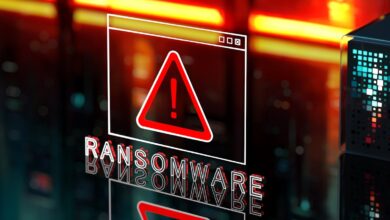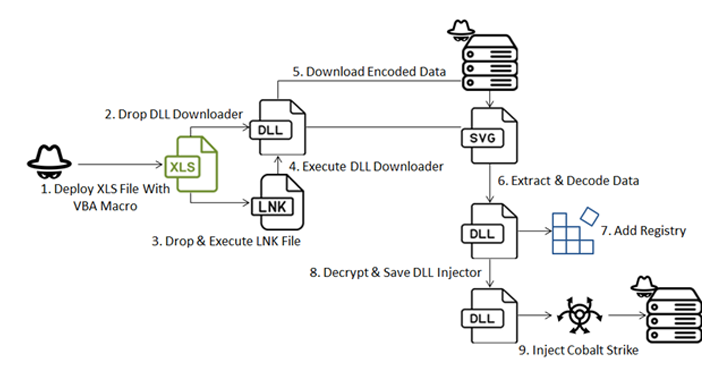The Key to Unbreakable Cybersecurity

Summary: Quantum computing is set to revolutionize cybersecurity through quantum entanglement, promising encryption that defies current and future hacking techniques. With Quantum Key Distribution (QKD), this technology could offer unprecedented data protection, challenging both practical and educational barriers that must be overcome for large-scale adoption.
As the digital landscape braces for a significant transformation, the emerging quantum computing technologies harness the phenomena of quantum entanglement, suggesting a future where data security is governed by the principles of physics. This new approach stands to elevate encryption far beyond the capabilities of classical cryptography, with experts exploring quantum mechanics—specifically entanglement—to shield sensitive information with near-perfect security.
Quantum entanglement occurs when pairs or groups of particles become interconnected so that the state of one particle instantly influences the state of the other, regardless of distance. This peculiar property is now being leveraged to develop cryptographic systems that could prove impenetrable to malicious activities. Known as Quantum Key Distribution (QKD), this method allows two parties to produce a shared random secret key, which can be used to encrypt and decrypt messages with absolute security.
Despite the vast promise of these sophisticated technologies, they are not without challenges. One major issue is preserving the fragile quantum states across long distances, essential for global communication systems. Additionally, the general populace and professionals must surmount a steep learning curve associated with the complexities of quantum systems.
As industry leaders and startups inject funds into research, the efforts to educate the masses are intensifying. Companies like IBM are instrumental in demystifying quantum computing by offering online quantum computing experiences and resources. Such awareness and training initiatives are crucial in overcoming skeptics and preparing the workforce for the forthcoming quantum era.
As quantum computing nears practical application, the cybersecurity industry—which is already experiencing a growth surge due to increased digital dependency and escalating cyber threats—anticipates a further boost. Quantum cryptography, in particular, has the potential to maintain a stronghold on data integrity and confidentiality in a way that has never been possible before. However, this quantum leap in digital safety will first require navigating financial, educational, and regulatory complexities, emphasizing the need for sustained investments in public education and professional development to lay the foundations for a secure, quantum-empowered future.
Industry Overview
The cybersecurity industry is at a pivotal juncture as it prepares for the integration of quantum computing technologies. Quantum computing represents a major leap forward in computational power, allowing for the processing of complex data at speeds unattainable by traditional computers. This advancement holds particularly profound implications for cybersecurity, as it enables the development of virtually unbreakable encryption methods, such as QKD, that can safeguard sensitive information against the most advanced cyber threats.
Market Forecasts
The market for quantum computing is rapidly growing, with significant investments from both private and public sectors. According to industry forecasts, the global quantum computing market is poised to expand exponentially, potentially reaching billions of dollars in the next decade. The adoption of quantum technologies in cybersecurity solutions is expected to be a major driver of this growth.
The financial services sector, government agencies, and healthcare industries are particularly invested in quantum computing for cybersecurity due to the sensitivity and value of their data. Sensitive personal data, intellectual property, and national security information require the utmost protection, which quantum-based solutions could provide.
Industry Challenges
While the potential benefits of quantum computing in cybersecurity are vast, the industry faces several significant hurdles. The quantum technology landscape is still in its early stages, with several technical challenges, such as error correction and coherence maintenance, yet to be fully resolved. Quantum computing requires specialized knowledge, which means there is a shortage of qualified professionals in this field.
Moreover, the existing infrastructure is not ready for a quantum leap. Governments and industries must invest in developing quantum-resistant algorithms and upgrading existing systems to integrate with quantum technologies — a process that will require time, coordination, and considerable expense.
Furthermore, there are concerns around quantum computing eventually being able to break current encryption standards. This threat of ‘quantum hacking’ in the future is prompting an early move towards post-quantum cryptography to protect against potential quantum computer attacks.
Related Industry Links
For those interested in the progress and applications of quantum computing, the following links provide additional information:
– IBM provides resources and access to quantum computing technology, as well as research and news related to its applications in various industries.
– The National Quantum Initiative supports long-term research and access to quantum information science and technology networks.
In conclusion, the promise of quantum computing in revolutionizing cybersecurity is clear, but the path forward is complex. It demands cross-sector collaboration, significant investment in research and development, and a concerted effort to prepare the global workforce for the upcoming quantum future. With these efforts, we can look forward to a new era of digital security, underpinned by the unassailable principles of quantum mechanics.

Michał Rogucki is a pioneering figure in the field of renewable energy, particularly known for his work on solar power innovations. His research and development efforts have significantly advanced solar panel efficiency and sustainability. Rogucki’s commitment to green energy solutions is also evident in his advocacy for integrating renewable sources into national power grids. His groundbreaking work not only contributes to the scientific community but also plays a crucial role in promoting environmental sustainability and energy independence. Rogucki’s influence extends beyond academia, impacting industry practices and public policy regarding renewable energy.



